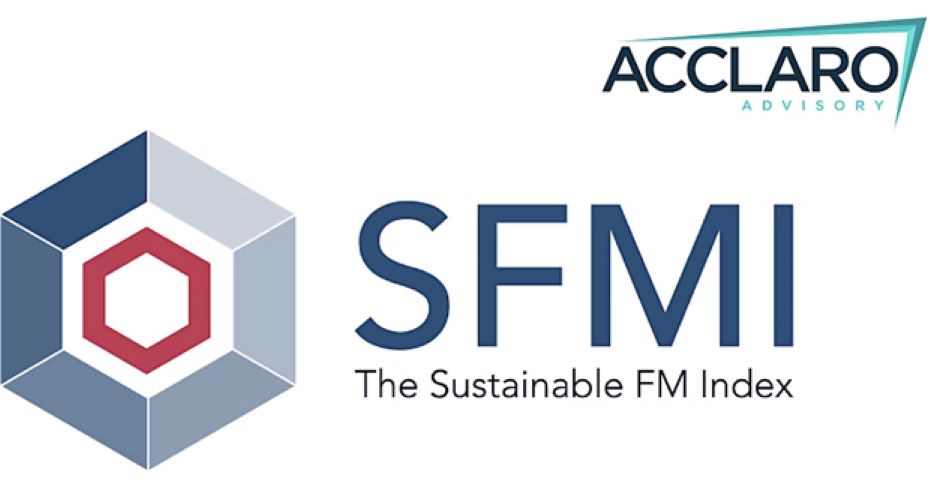Employee wellbeing and retention are a clear focus for FM industry

The Sustainable Facilities Management Index (SFMI) 2023 assessments have uncovered significant trends shaping the future of the FM industry.
For example, while short term risks to the industry, including staffing and skills shortages, are being managed through a focus on employee wellbeing and development programmes, there is an urgent need for long-term planning to understand the risk of client asset devaluation from the key systemic risk – climate change. The industry is undergoing a transformative shift to meet evolving market demands but is currently less focussed on what the next decade will bring.
Employee Wellbeing – a tool for employee retention
Employee retention has emerged as a crucial area of concern for FM providers operating in a constrained talent pool. While wages and salary increases have traditionally been tools for attracting and retaining talent, FM companies are now realising the importance of fostering a positive workplace culture and embracing responsible business values. Emphasising employee development, wellbeing, and social value has become pivotal in maintaining a strong and committed workforce.
The findings have come from the SFMI’s assessments which provide a detailed roadmap of how FMs embed sustainability within their organisation, and from the SFMI’s industry network partners who provide insight from the built environment. The SFMI identifies areas of weakness and provides an improvement plan. This year SFMI worked with BAM FM, Optima Grupo, EMCOR UK, SKANSKA, Churchill, Sewell, VINCI Facilities, Mite and Arcus FM.
In this year’s assessments, Churchill won SFMI’s Rising Star Award for biggest improvement and new initiatives, and Skanska, Vinci, BAM and Mitie achieved platinum status.
Other findings include:
Decarbonisation Gains Momentum
The SFMI findings indicate a heightened understanding of decarbonisation among mature sustainable FM providers. These companies are expanding their measurement of zero carbon, particularly in scope 3 emissions. The industry is witnessing an increase in customer demands for services that extend beyond energy and workplace management to include decarbonisation implementation and strategy. To meet these evolving needs, both small and large FM providers are rapidly upskilling and diversifying their service offerings.
Long-Term Risk Planning Becomes Essential
Senior leaders are urged to adopt a longer-term risk planning approach, encompassing strategic risks related to climate change impacts over a 10- to 15-year horizon. This will help them to engage with asset owners and manage potential significant devaluations from climate transition and physical risks. As regulations shift toward a more extended risk assessment period, the industry must evolve its culture at the senior level to proactively address these challenges and opportunities.
Scope 3 Emissions Challenge Accelerates
The boundaries for scope 3 emissions are expanding, with a focus on measuring purchased goods and services in the greenhouse gas corporate inventory. Larger FM providers are now poised to engage with suppliers to achieve progress in this area, emphasising the need for resource allocation and knowledge transfer to ensure a sustainable journey. The industry is also witnessing a shift in waste management practices, with mature FM providers identifying and addressing large streams of waste in the value chain through elimination or circular/recycling systems.
The post Employee wellbeing and retention are a clear focus for FM industry appeared first on FMJ.

